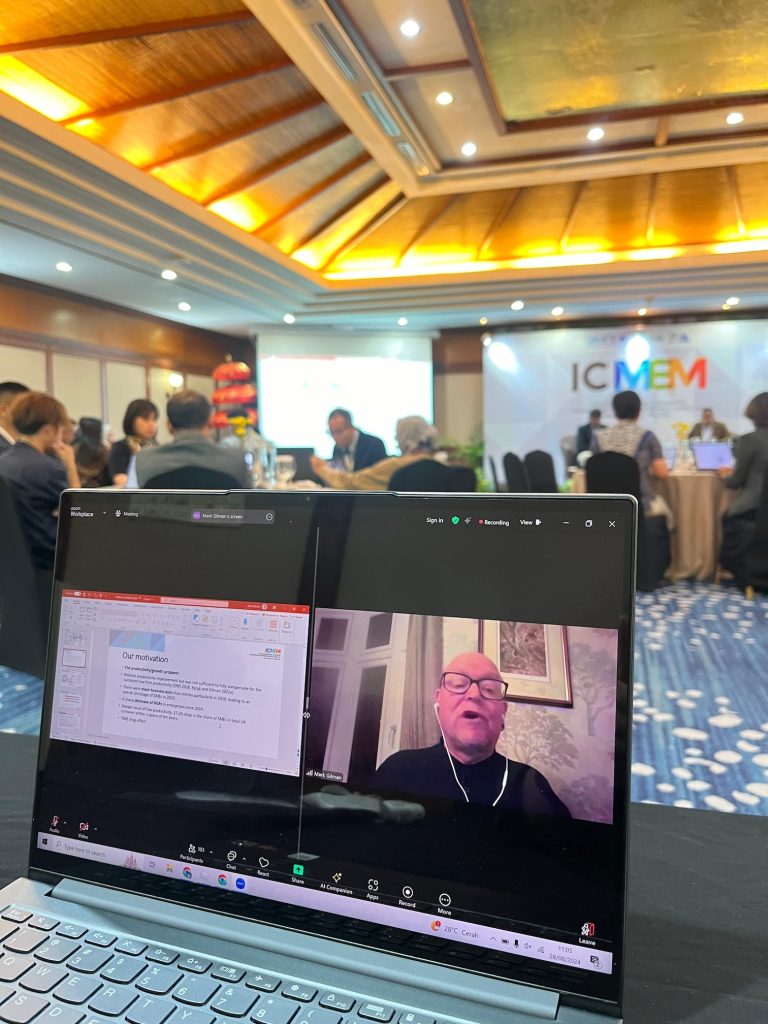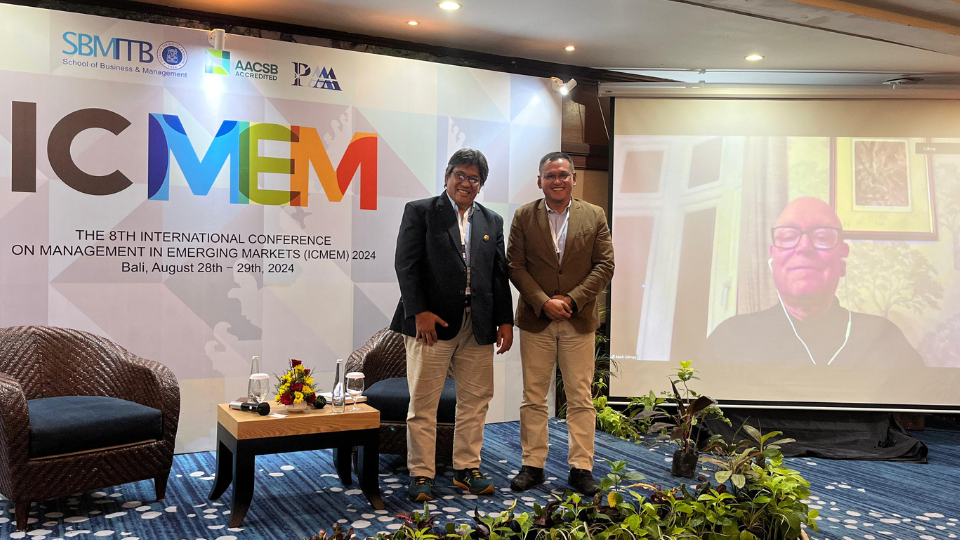At the International Conference on Management in Emerging Markets 2024 (ICMEM), hosted by SBM-ITB and attracting attendees and presenters from seven nations, Mark Gilman, an economics professor at the University of Derby, UK, delivered a thought-provoking presentation on the urgent need to enhance productivity and growth within small and medium-sized enterprises (SMEs). His focus was mainly on the UK, where a significant decline in this business sector has been observed.

In his presentation, Professor Gilman stated, “Research conducted by Professor Mark Hart shows that after 15 years, nearly 90% of small businesses have disappeared and are no longer in operation. We face a significant dilemma in the UK and worldwide: How can we help businesses survive, thrive in a zero-carbon environment, and support the economy?”
To address this challenge, Professor Gilman discussed a multidisciplinary approach that includes research on UK SMEs and the development of realistic models focusing on market competition, collaboration, supply chain challenges, and the strategic use of technology and innovation.
“We have developed a dynamic organizational transformation framework that enables companies to evaluate their evolutionary needs and manage their organizational growth comprehensively.”
“We have developed a dynamic organizational transformation framework that enables companies to assess their evolutionary needs and manage their growth comprehensively,” he explained.
Professor Gilman categorized companies into four types: high-growth companies, low-growth companies, static organizations, and declining companies. He emphasized that high-growth companies exhibit unique characteristics compared to others. “These high-growth organizations prioritize long-term innovation in their processes, utilizing technology and collaboration to build strong networks with suppliers and consumers. Additionally, these firms integrate performance management systems with strategic management.”
The transformation framework outlined by Professor Gilman includes digital transformation, strategic transformation, and mindset transformation. This framework focuses on productivity, opportunities, and inclusiveness, aiming to foster organizational growth while promoting courage, value, and sustainability. He emphasized the importance of having a strategy and understanding the digital revolution and the mindset shifts required within organizations. “Organizations must change their thinking and the mindset of their workers so that they can operate more dynamically, efficiently, and productively,” he urged.
Professor Gilman asserted that this comprehensive framework can empower SMEs to endure and prosper, contributing positively to the economy and the environment.




